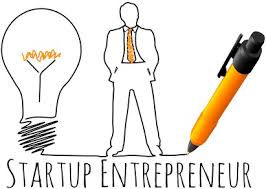
But the term entrepreneur is a vague one, which can mean different things around the world.
In the US, it might refer to flamboyant property developers like Donald Trump, in England to an eccentric inventor trying to make a better mousetrap, while in Australia the term has been completely discredited and taken to mean anyone who steals from investors and employees alike in a desperate grab to make as much as money as possible in as short a time as possible.
Perhaps the most useful and practical definition is someone who wants to set up a thriving small to medium-sized enterprise (SME). Someone with no desire to be a media mogul or a shipping magnate, just a person who wants to work hard, reap the rewards of their hard work and build a thriving business for their family’s security and prosperity.
An examination of the common characteristics of successful entrepreneurs can help those considering setting up their own business decide whether they have what it takes or not. If not, they can then either develop those traits, hire others with them or decide against going into business for themselves.
Many academics and researchers have attempted to determine what makes a successful entrepreneur. One of the most vital personality traits is that they are a “visionary“. Although successful business people must also be strategists and technicians – i.e. know the best way to achieve an outcome and know how to do what needs to be done to make it happen – without the original goal or vision there will be no business.
Strongly coupled with this vision must be a strong belief in themselves. This belief or self-assurance is necessary to overcome all those who throw up obstacles and say that the vision cannot be achieved. Paradoxically, this self-belief must also be coupled with an awareness of limitations, so that it is possible to ensure that talented people are hired to help attain the vision.
Also very important is mental toughness. Not only must an entrepreneur be able to cope with huge amounts of uncertainty throughout the venture, especially in the start-up phase, there are a lot of lows before the highs, without money or time to alleviate them. The saying “when the going gets tough the tough gets going” might be a corny cliché but for the entrepreneur it is true. Most can’t take a holiday in the first years of a business – in fact, many are lucky if they can take weekends off.
Self-belief and mental toughness combine to produce a personality that is happy to, maybe even craves taking risks. And being an entrepreneur does involve in many cases huge risks. It is not uncommon for the family home to be used to provide start-up capital.
Hand in hand with mental toughness goes physical stamina. The hours are long and the business doesn’t stop because the principal gets sick.
Allied to this hard work is the characteristic that the successful entrepreneur doesn’t view business as being work because they are so driven and usually enjoy what they are doing, No matter how many hours are invested in building up the enterprise by its founder, the amount of time available is finite. Other resources are also scarce, the most important being cash.
In order to make the best and most productive use of these resources the successful entrepreneur must be very well organized.
Although everyone’s dream is to build a thriving business, sometimes this is not possible. The successful entrepreneur must therefore retain the ability to be objective, to make rational decisions at all times, and make a timely exit before money and health reserves are completely exhausted.
Strangely enough, one of the abilities that is not needed in an entrepreneur is the desire to make huge amounts of money. That many do is undisputed, but this is often a side effect of their drive to succeed, and if it is valued at all, it’s for its use a measurement of success.
For every successful self-made businessman who enjoys flaunting his wealth, there are many more who prefer to live relatively frugally and simply. Many are notoriously mean, such as Paul Getty, the founder of Getty Oil, who installed payphones in his English mansion for the use of his guests. Even if a self-made businessman or woman does feel the need to spend money, this needs to be controlled, as it should be reinvested in the business. Many entrepreneurs, especially in the US, take no salary for the first year then pay themselves less than they could earn on the open market.
If someone has all the above characteristics, plus the ability to take risks, they may well succeed. But important though all the above characteristics are, every successful entrepreneur also needs luck. Although many strongly believe that the harder they work the luckier they get.
Entrepreneur.com
US magazine devoted to entrepreneurs
An Entrepreneurial Personality Test
Copyright 2003, RAN ONE Inc. All rights reserved. Reprinted with permission from www.ranone.com.